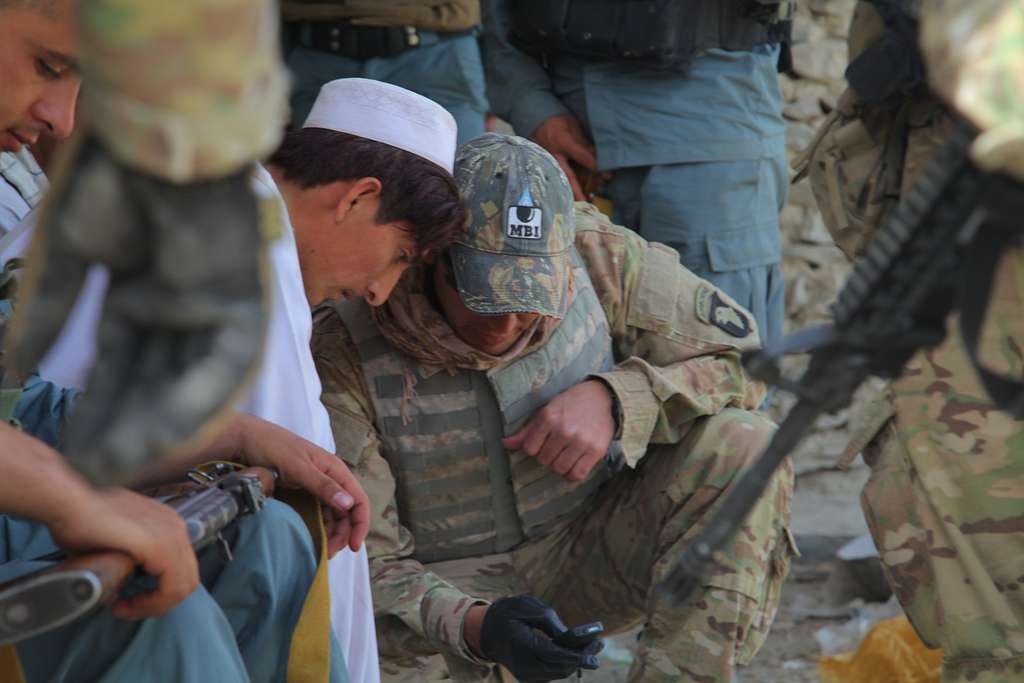No Derogation, No Military Detention: The ECHR in Al-Jeddah v. UK
[UPDATE: Please note the updated, italicized text below. Also check out Marko Milanovic's take on al-Jedda and al-Skeini, here.]
Hilal Abdul-Razzaq Ali Al-Jedda is a dual citizen of Iraq and Great Britain. He left the UK in 2004 to travel to Iraq, along with four relatives. He was detained en route by UAE security officials in Dubai, but allowed to continue on, arriving in Baghdad in late September. Two weeks later, he was arrested by U.S.
Published by The Lawfare Institute
in Cooperation With

[UPDATE: Please note the updated, italicized text below. Also check out Marko Milanovic's take on al-Jedda and al-Skeini, here.]
Hilal Abdul-Razzaq Ali Al-Jedda is a dual citizen of Iraq and Great Britain. He left the UK in 2004 to travel to Iraq, along with four relatives. He was detained en route by UAE security officials in Dubai, but allowed to continue on, arriving in Baghdad in late September. Two weeks later, he was arrested by U.S. soldiers, and eventually was transferred to British control in Basrah. He was held as a security internee for approximately three years, on the theory that he was involved in recruiting individuals abroad to commit terrorist acts in Iraq, that he was involved in helping a particular explosives expert to get into Iraq, that he conspired with that expert to carry out IED attacks, and that he conspired with others to get IED-related equipment into Iraq. In the interim, British authorities took away his citizenship (a decision later upheld by the Special Immigration Appeals Commission, on roughly the same grounds as specified above).
Not long after his detention began, a suit was filed on his behalf in the UK, under the Human Rights Act, arguing that his detention violated Article 5, section 1 of the European Convention on Human Rights. Article 5 articulates the right to liberty, and section 1 specifies that “[n]o one shall be deprived of his liberty save in the following cases and in accordance with a procedure prescribed by law:
- (a) the lawful detention of a person after conviction by a competent court;
- (b) the lawful arrest or detention of a person for non-compliance with the lawful order of a court or in order to secure the fulfilment of any obligation prescribed by law;
- (c) the lawful arrest or detention of a person effected for the purpose of bringing him before the competent legal authority of reasonable suspicion of having committed and offence or when it is reasonably considered necessary to prevent his committing an offence or fleeing after having done so;
- (d) the detention of a minor by lawful order for the purpose of educational supervision or his lawful detention for the purpose of bringing him before the competent legal authority;
- (e) the lawful detention of persons for the prevention of the spreading of infectious diseases, of persons of unsound mind, alcoholics or drug addicts, or vagrants;
- (f) the lawful arrest or detention of a person to prevent his effecting an unauthorized entry into the country or of a person against whom action is being taken with a view to deportation or extradition.
[The US-Iraq agreement including Powell’s letter] could not override the binding obligations under the Convention. In this respect, the Court recalls its case-law to the effect that a Contracting State is considered to retain Convention liability in respect of treaty commitments and other agreements between States subsequent to the entry into force of the Convention (see, for example, Al-Saadoon and Mufdhi v. the United Kingdom, no. 61498/08, §§ 126-128, ECHR 2010-...).If I’m reading this correctly, the ECHR is suggesting the whole inquiry into UNSC authorization is rather besides the point, since “treaty commitments and other agreements between States subsequent to the entry into force” of the ECHR just can’t alter ECHR obligations. This seems strongly to indicate that the UNSC has no power to trump ECHR obligations. The bottom line therefore seems to be that, absent a derogation, no ECHR member state may use military detention (whether based on a combatancy model or, as here, a security internment model akin to GCIV). [Additional update: a reader suggests that it would be far more accurate to say that the point is simply that the most the Security Council can do is put a member state in a position where it has to choose between complying with its ECHR obligations and complying with its UN Charter obligations.] [Further update: A reader suggests that the quoted paragraph merely refutes the fall-back argument that controlling authority may be found not in the UNSCR but rather just the Iraq-US/UK agreement standing alone. On that view, it would remain open for a sufficiently explicit UNSCR to authorize security internment.] I hope to post later, or tomorrow, about the ECHR’s simultaneous decision in Al-Skeini.
Robert (Bobby) Chesney is the Dean of the University of Texas School of Law, where he also holds the James A. Baker III Chair in the Rule of Law and World Affairs at UT. He is known internationally for his scholarship relating both to cybersecurity and national security. He is a co-founder of Lawfare, the nation’s leading online source for analysis of national security legal issues, and he co-hosts the popular show The National Security Law Podcast.





